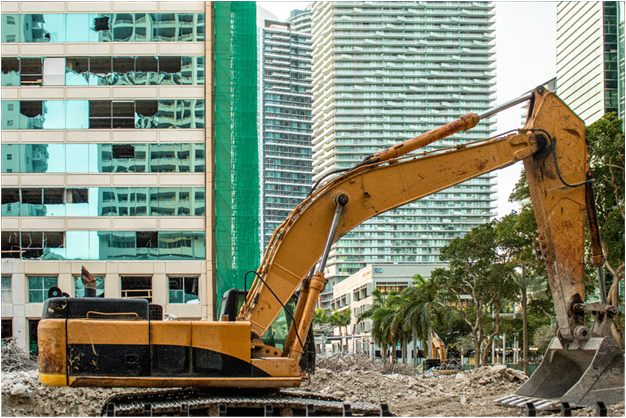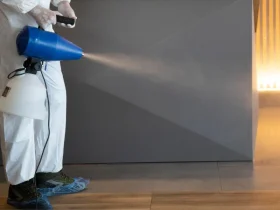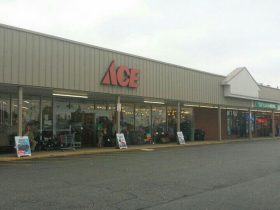To allow debris, garbage, and waste to linger and pile up on a property may seem trivial. However, this couldn’t be further from the truth. Homeowners, landlords, or property managers tend to misjudge the hidden consequences of debris left uncleaned. The problems presented range from safety issues to costly risks to the property. Allowing clutter build up will undoubtedly develop into ongoing problems, especially those that negatively impact health, cost efficiency, and reputation within the community. What you see as junk in the corner of a yard can easily lead to issues that escalate as they sit. After some days, or even weeks, it becomes less of an issue to you, which means it may be harder to tackle it in a more effective and cost effective way the longer you wait.
Safety Hazards in Cluttered Yards
With broken furniture, old lumber, or piles of lumber piles where nobody can ask who it belongs to, the yard becomes a dangerous one. Someone unnoticed can trip over a pile, stub their toe, or be cut by a loose edge, and loose materials can also move. When wind storms happen, or when an old piece becomes airborne, you run the risk of damage to a vehicle or structure. Click on link https://www.quora.com/How-is-clutter-a-safety-hazard for more helpful info.
Lumber piles, debris piles, and the stuff in yards, typically is not stable. The health and safety hazard presents itself when people or children are told to be careful around someone else’s pile. A single misstep can lead to a person falling, spraining, or cutting. For landlords allowing cluttered yards presents a significant unknown liability to neighborhood tenants for a prevention spending. For example, a pile of bricks or tiles may not be a dangerous wreck, until the whole thing falls or collapses without any warning.
Mold and Pest Issues
When trash, broken appliances, or old lumber sit outside week on week, mold and pests begin to thrive. Moisture held in debris creates a breeding ground for mold that can spread quickly and jeopardize every structure around it. To make matters worse, mold spores are capable of being airborne (see here for more), which can compromise indoor air quality and cause respiratory issues.
Another hidden hazard that can come from neglected cleanup is pests. Left unchecked, rodents and insects thrive even in what we deem to be unsuitable for them, but the pests bring with them a series of problems:
- Rodent chewing on wires, which can create a fire hazard
- Mosquitoes breeding in standing water, which can pose disease risks
- Termites feeding on wood piles and mischief items, which can weaken structure supports
- Roaches spreading bacteria from non-inhabiting areas into occupied spaces
Pest infestation isn’t just a health problem; there’s also going to be extermination fees if we don’t remove the debris first, and possibly thousands of dollars added to repairs—which may or may not have happened had we cleaned the area out promptly. Once we have made a suitable home for pests, they are capable of establishing colonies which settle, and then spread out over adjacent properties.
Neighborhoods Regulations
Most neighborhoods have regulations, as do most municipalities, for how long debris can sit around on a property. Generally, an intended purpose of local codes is to protect residents from hazards and ensure the aesthetics of the community as well. For instance, all property owners must remove debris within a reasonable amount of time from being instructed to do so by an inspector or face fines and/or citations from the city.
For those of us that live in a metropolitan area, there is a route to cleanliness by hiring bulk waste removal and construction cleanup Philadelphia—to take proper care of the debris, and to comply with local code. Clearing a property of debris ensures the safety of it, and avoids unnecessary penalties. In some jurisdictions, ignoring debris can actually result in property liens, if violations are not corrected in a timely manner.
Liability Risks to Property Owners
In addition to health and safety issues, owners also need to consider liability risks associated with cluttered property. If a renter, neighbor, or visitor is injured as a result of clutter left on a property, the owner can be held financially liable, leading to expensive lawsuits, increased insurance rates or lost rental income if renters leave as a result of unsafe environments.
Property insurance companies may deny claims when the damage results from negligence. For instance, if a fire spreads rapidly because of debris blocking emergency exits, an insurance company may deny claims on the loss. Being proactive in cleanup efforts is important to prevent exposure to liability costs, which can result in loss in property value.
Long-Term Property Damage
Neglected debris creates not only immediate dangers, but also grave long-term risks to a property’s condition. Rainwater pooling inside old junk can penetrate the soil and damage foundation. Old lumber, yard waste or other debris can trap moisture on siding or building materials letting mold, rot or materials deteriorate and degrade overall structure.
Before we know it, a small pile of “temporary trash” turns into thousands of dollars in repairs. Landlords could end up with uninhabitable units, and homeowners could be penalized by a declining property condition and value. Regular trash removal and debris hauling maintain a property’s integrity, as well as addressing minor issues before they become repairs costing major money.
- Debris left too long result in increased maintenance costs
- Moisture and insects fast track property declining
- Debris delays can negatively impact overall property value
Regularly clearing stuff or junk out can truly counter these issues. Compare the cost of mitigating damage with the cost of repairing damage after it is irreversible.
Conclusion
Ignoring the cleanup of debris is more than a nuisance, it contributes to conditions that pose a real, direct threat to safety, health and financial stability. For homeowners and landlords, with or without tenants, it is a property owner’s responsibility to take immediate action on disorderly yards, piles of construction debris or other waste piles—an investment in protecting the property and improving the community.
Hiring a professional service to address the large and potentially hazardous piles also gives the owner the opportunity to act on negative hazards immediately instead of addressing long-term issues, due to delayed piles of trash in yards or properties. While keeping the property clean and orderly is a responsible goal for property owners, being proactive today about the debris exposed on the property can prevent an epic disaster tomorrow.












